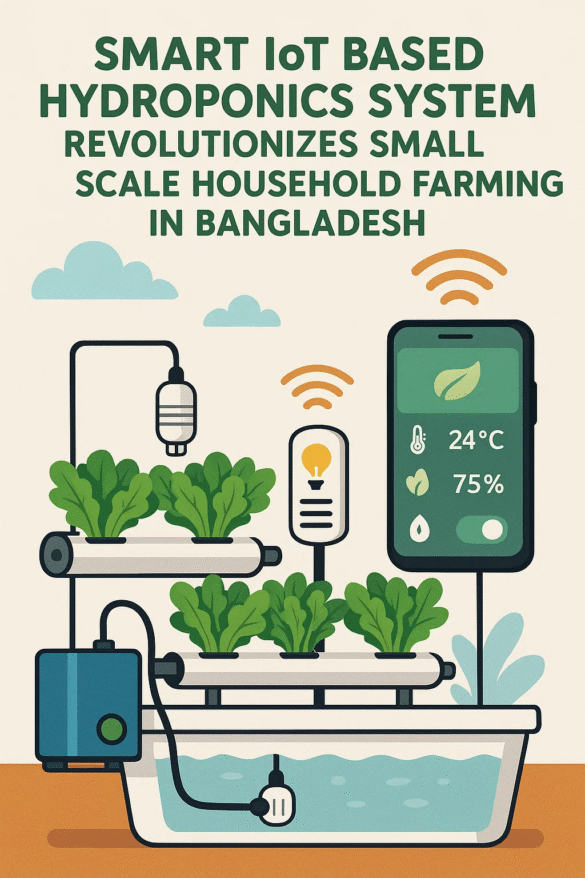A groundbreaking smart IoT-based hydroponics system is emerging as a transformative solution for small-scale household farming in Bangladesh, promising to revolutionize food production in urban and peri-urban areas. This innovative approach leverages internet-of-things technology to create efficient, automated, and sustainable growing environments, directly addressing the challenges of limited arable land and increasing food security for families across the nation. The system integrates various smart sensors and actuators that monitor crucial environmental parameters such as water pH levels, nutrient concentrations, temperature, and humidity. These sensors collect real-time data, which is then processed by a central control unit. Based on this data, the system automatically adjusts nutrient delivery, lighting, and climate control, ensuring optimal growing conditions for plants. This level of automation significantly reduces manual labor and human error, making hydroponics accessible even for those with limited agricultural experience. Designed specifically for small-scale households, this IoT-based hydroponics system offers numerous benefits. It enables year-round cultivation of various crops, including leafy greens, herbs, and some vegetables, regardless of external weather conditions. The closed-loop system also consumes significantly less water compared to traditional soil-based farming, making it an incredibly water-efficient method. Furthermore, without the need for soil, issues like soil-borne diseases and pests are minimized, often leading to healthier plants and reducing the need for chemical pesticides. For Bangladesh, a country with high population density and a significant portion of its population living in urban centers, this technology holds immense promise. It empowers families to produce fresh, nutritious food right at their homes, on rooftops, or in small backyards, contributing to food self-sufficiency and reducing reliance on external food sources. It also has the potential to create new livelihood opportunities and enhance community resilience in the face of climate change and land scarcity. The development and adoption of such smart agricultural technologies signify a positive shift towards sustainable and technologically advanced farming practices in Bangladesh. By harnessing the power of IoT, these hydroponics systems are not only making farming more efficient and productive but also promoting a greener and healthier lifestyle for urban dwellers. This innovative approach promises a future where fresh produce is readily available, contributing to improved nutrition and a more resilient food system for all.
Smart IoT-Based Hydroponics System Revolutionizes Small-Scale Household Farming in Bangladesh
47


